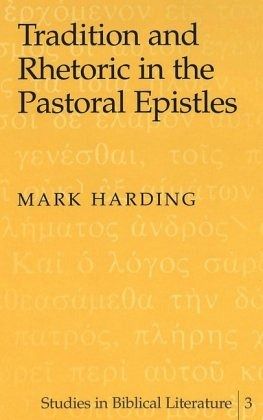Nicht lieferbar

Tradition and Rhetoric in the Pastoral Epistles
Versandkostenfrei!
Nicht lieferbar
Much of the debate concerning the Pastoral Epistles of the New Testament (1 Timothy, 2 Timothy, and Titus) has concentrated on the question of their authorship. The most reasonable explanation for them is that they were written in a post-Pauline context by one committed to commending his interpretation of Paul's legacy to his audience in order to secure it against the inroads of false teachers. However, little attention has been given to the persuasive strategies the author employs. This book, therefore, investigates the rhetoric by which the Epistles' author commended his actualization of the...
Much of the debate concerning the Pastoral Epistles of the New Testament (1 Timothy, 2 Timothy, and Titus) has concentrated on the question of their authorship. The most reasonable explanation for them is that they were written in a post-Pauline context by one committed to commending his interpretation of Paul's legacy to his audience in order to secure it against the inroads of false teachers. However, little attention has been given to the persuasive strategies the author employs. This book, therefore, investigates the rhetoric by which the Epistles' author commended his actualization of the Pauline tradition. The strategies that the author uses derive from the sphere of ancient letter-writing and from oratory.



